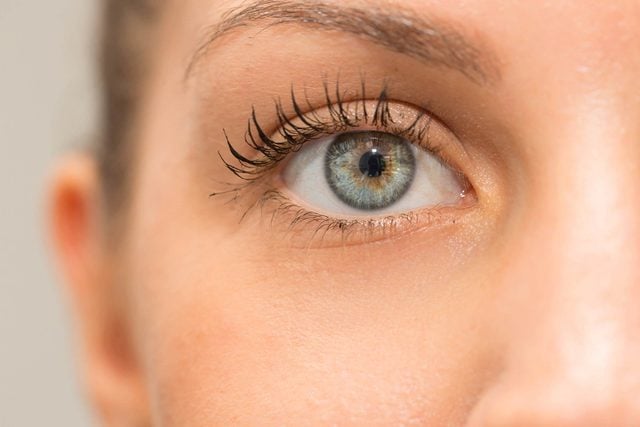This Is What Your Eye Color Could Reveal About Your Attractiveness
Updated: Apr. 19, 2024
Science can now predict who your future spouse will be, based on their eye color.

Your eye color could mean way more than a simple genetic pigmentation. For starters, it might reveal insightful clues into your health and personality. But here’s the shocker: It could also determine who you are most attracted to. While romantic partners may share a few physical traits, science says that your attraction to certain eye colors could actually come from another surprising source.
In a paper published on the online database bioRxiv, Lisa DeBruine of the University of Glasgow and her colleagues found that people tend to prefer lovers with the same eye color as their parents. Creepy, right?
To test how someone’s eye color could determine their attractiveness, the research team recruited 300 heterosexual and homosexual men and women. Each participant’s eye color, as well as those of their lover and their parents, was logged. Then, the researchers categorized each response as either light—which included hazel, green, blue-green, blue, and grey eyes—or dark, including black, dark brown, and light brown eyes.
Overall, straight women and gay men were both twice as likely to have a lover with a similar eye color as their father’s. Straight men and gay women, on the other hand, were two and a half times more likely have a lover whose eye color matched their mother’s.
DeBruine and her colleagues believe that children might “imprint” on, or determine their own sexual preferences by, the parent whose gender they are attracted to. Let’s just hope your parent doesn’t have the rarest hair and eye color combination in the world; in that case, your options could be somewhat limited.
Because the paper has not been peer-reviewed yet, more research is needed to determine if parental eye color really could influence our preferences in partners. Until then, you might want to rely on these 10 science-backed reasons for sexual attraction, instead.
[Source: The Economist]
